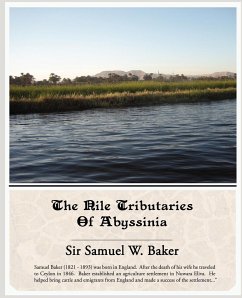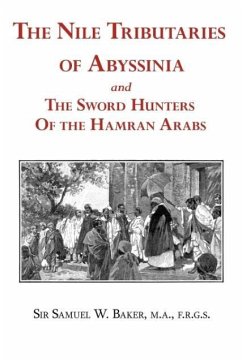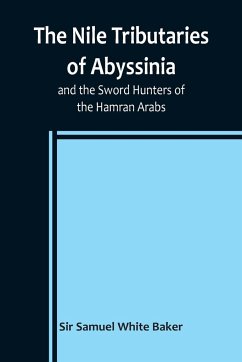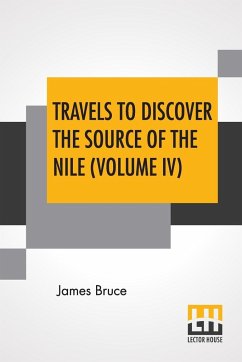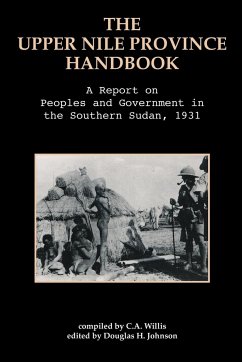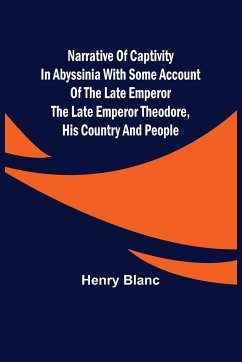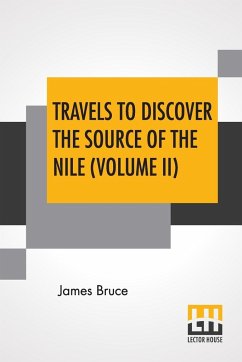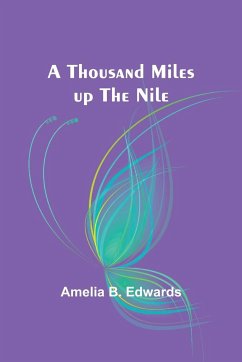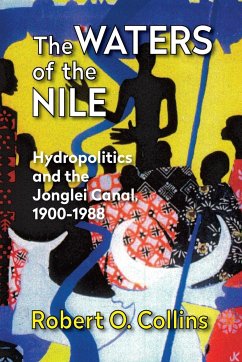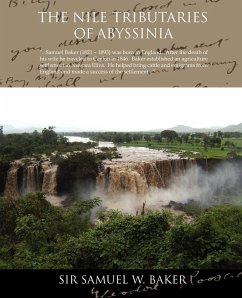
The Nile Tributaries Of Abyssinia
Versandkostenfrei!
Versandfertig in 1-2 Wochen
26,99 €
inkl. MwSt.

PAYBACK Punkte
13 °P sammeln!
Samuel Baker (1821 - 1893) was born in England. After the death of his wife he traveled to Ceylon in 1846. Baker established an agriculture settlement in Nuwara Eliva. He helped bring cattle and emigrants from England and made a success of the settlement. During his stay in Ceylon he spent a great deal of time hunting with his hounds, which became the genesis of this novel and a later work. Baker spent 12 months exploring the Nile and the area surrounding it. His explorations included the Atbara, Settite, Royan, Salaam, Angrab, Rahad, Dinder, and the Blue Nile. Baker states that "The interest ...
Samuel Baker (1821 - 1893) was born in England. After the death of his wife he traveled to Ceylon in 1846. Baker established an agriculture settlement in Nuwara Eliva. He helped bring cattle and emigrants from England and made a success of the settlement. During his stay in Ceylon he spent a great deal of time hunting with his hounds, which became the genesis of this novel and a later work. Baker spent 12 months exploring the Nile and the area surrounding it. His explorations included the Atbara, Settite, Royan, Salaam, Angrab, Rahad, Dinder, and the Blue Nile. Baker states that "The interest attached to these portions of Africa differs entirely from that of the White Nile regions, as the whole of Upper Egypt and Abyssinia is capable of development, and is inhabited by races either Mohammedan or Christian; while Central Africa is peopled by a hopeless race of savages, for whom there is no prospect of civilization."



